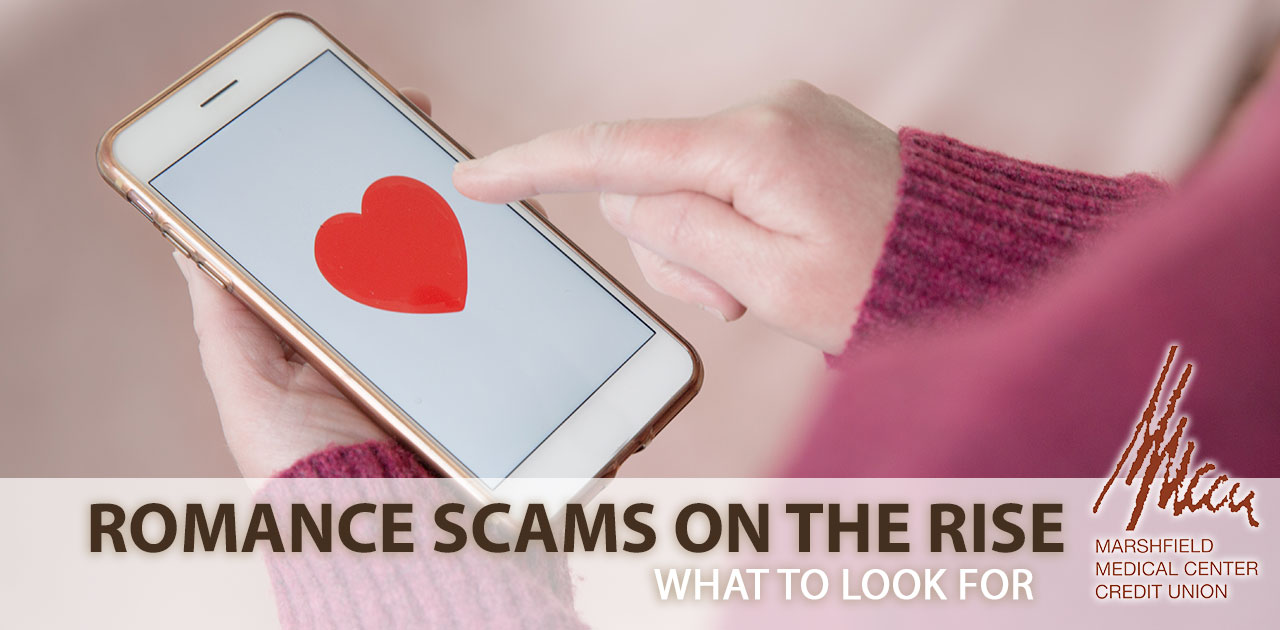Online romance scams have become increasingly common in recent years, and they can be devastating for the victims who fall for them. According to the FTC, romance scams claimed $139 million from adults age 60 and older in 2020, up from $84 million the year before.
“These scams typically involve criminals who create fake online profiles on dating or social media websites, pretending to be someone they’re not in order to gain the trust of their victims,” explained David Murphy, MMCCU President. “Once they’ve gained their victims’ trust, these scammers often use emotional manipulation and a variety of different tactics to convince them to send money or provide personal information.”
They may ask for money to pay for travel expenses to come and visit their victim, or they may claim to be in financial trouble and in need of a loan.
Unfortunately, many people fall for these scams every year, and the consequences can be devastating. Victims may lose thousands of dollars or more, and they may also experience emotional trauma as a result of being deceived and betrayed by someone they thought they could trust.
So how can you protect yourself from online romance scams? Here are a few tips:
- Be wary of anyone who asks for money or financial information online, especially if you’ve never met them in person.
- Don’t share too much personal information online, and be cautious about sharing photos or other sensitive information with people you don’t know well.
- If you’re using a dating or social media site, be sure to read the site’s safety guidelines and take steps to protect your privacy.
- If you do decide to meet someone in person, be sure to take precautions to ensure your safety, such as meeting in a public place and telling a friend or family member where you’ll be.
You might be in a Romance Scam if your new “special someone”….
- After initial contact on a legitimate dating site, requests that you communicate by e-mail or messaging service;
- Avoids communicating “face-to-face”, including Face Time calls or any other type of video chat;
- Calls you their “boyfriend” or “girlfriend”, although you have never met;
- Claims to be from the U.S., but is living, working or traveling abroad;
- Claims that your relationship is “destiny” or “fate”;
- Shares a picture of themselves that could be a model from a magazine;
- Asks for gift cards, reloadable cards, a wire transfer, for any reason, before you have met in person;
- Asks for financial support to pay for a plane ticket or other travel expenses, for any type of medical expenses, to pay custom fees to retrieve something, pay off a debt, or pay for traveling documents;
- Has made plans to meet you, but something has always come up;
- Tells you they are in the military stationed in another country;
- Uses odd grammar or spelling;
- Asks to send a large sum of money to your credit union account;
- Asks for personal information, such as your birthday, credit union account information, Social Security Number, home address and Zip code, names of your pets and children, or password;
- Told you that someone close to them has been in an accident, or other type of crisis, and needs money;
- Suddenly adds you on social media and begins conversations that quickly lead to romance;
- Is drastically younger than you are.
While none of these red flags is a sure indicator of a romance scam, any one of them should trigger the need to be cautious, and be a reminder to NEVER send money in any form to someone you have not met in person.
Remember, online romance scams can happen to anyone, so it’s important to be cautious and take steps to protect yourself. If you suspect that you’ve been the victim of a romance scam, report it to the appropriate authorities as soon as possible.
If you are part of a romance scam (or any cyber scam), please contact MMCCU. It should be reported it to the FBI by calling: 1-800-CALL-FBI (1-800-225-5324) or online at the FBI’s Internet Crime Complaint Center (IC3.gov). We can assist with this.


